

Not Your Average Foodie: Famous Female Gourmands
Summary
Reflection Questions
Journal Prompt
A gourmand, someone who takes great pleasure in food, was once synonymous with a glutton, but the word now has a much less negative connotation. Gourmands exhibit a great enthusiasm for indulging in fine cuisine and delicacies. Unlike a gourmet, who may focus more on the refinement of food, a gourmand is typically characterized by their love for eating and experiencing a wide variety of flavors and dishes. Gourmands may be adventurous in their culinary pursuits, seeking out new and unique dining experiences, and they often take pleasure in savoring meals as a central aspect of their enjoyment in life. Female gourmands have made significant contributions to food culture throughout history, shaping culinary trends and taste, influencing dining habits, and challenging societal norms. Read on to learn about five of our favorite female gourmands throughout history.
Excessively Fond of Food and Drink: How “Gourmand” Evolved Over Time


The term “gourmand” has its origins in the French language, derived from the Old French word “gourmant,” which means “glutton” or “one who is fond of eating.” Over time, however, the interpretation and use of the term have evolved. In its earliest usage, “gourmand” often had a negative connotation, referring to someone who excessively indulged in food, often to the point of gluttony. It was associated with overeating and lack of restraint.
As culinary culture evolved, the interpretation of the term began to shift. While it still retained some of its associations with excessive eating, it also came to be associated with a love and appreciation for fine food and dining experiences. Gourmands were seen as individuals who took pleasure in exploring and enjoying a wide range of culinary delights, often with a discerning palate and an enthusiasm for gastronomy.
Gourmands in Modern Times


In modern times, the word “gourmand” is often used in a more positive light, referring to individuals who have a deep passion for food and dining experiences. Gourmands are often celebrated for their adventurous spirit in trying new foods, their ability to appreciate the nuances of different cuisines, and their enjoyment of the pleasures of the table.
While the term “gourmand” originally had negative connotations of excess and gluttony, its interpretation and use have evolved to encompass a broader appreciation for food and dining experiences, celebrating the joys of indulgence and culinary exploration. Today, Merriam Webster defines a “gourmand”as “one who is heartily interested in good food and drink.”
Gourmand’s Distinction from “Gourmet”
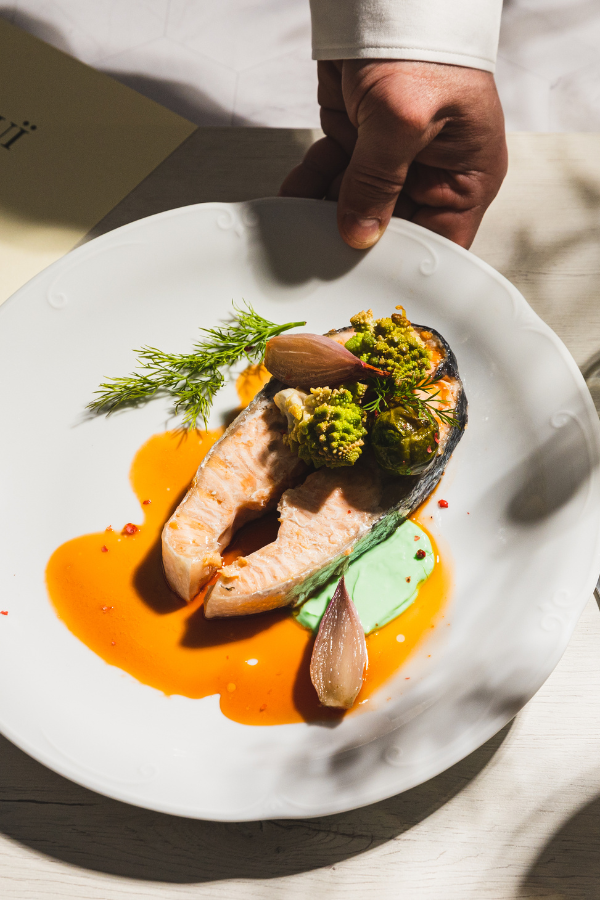

The term “gourmet” is often used interchangeably with “gourmand,” but there is a distinction between the two. While a gourmet is someone who is knowledgeable about and appreciative of fine food and drink, with a focus on quality and refinement, a gourmand is more specifically characterized by their love for eating in abundance and experiencing a wide variety of flavors and dishes. Gourmands enjoy food and cooking techniques without considering the traditional restraints of what is “good food” versus “bad food.”
Famous Female Gourmands Throughout Food History
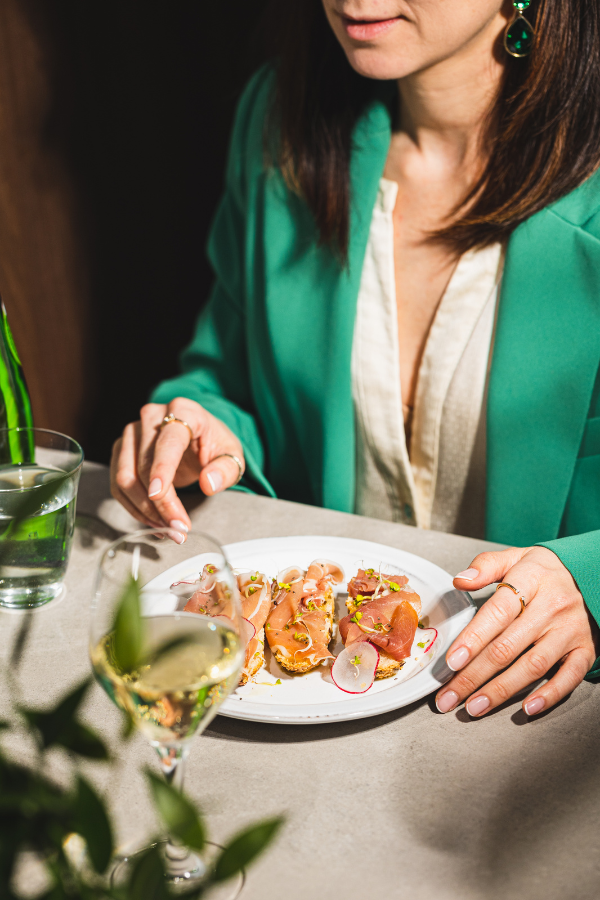

From pioneering chefs like Julia Child, who introduced French cuisine to American households, to food writers like Elizabeth David, who revolutionized British attitudes towards food with her Mediterranean-inspired recipes, female gourmands have played pivotal roles in expanding culinary horizons. Their passion for food, coupled with their creativity and expertise, has inspired generations of home cooks and professional chefs alike.
Through their cookbooks, television shows, and culinary activism, these women have not only elevated the appreciation of food but have also championed diverse culinary traditions, promoted sustainable practices, and advocated for social change within the food industry. Their influence continues to resonate today, shaping the way we eat, cook, and think about food around the world.
Julia Child
Julia Child, renowned as one of the most influential figures in culinary history, epitomized the essence of a gourmand. Her journey into the world of food began in earnest when she moved to France with her husband, Paul Child, in the late 1940s. It was in Paris where she discovered her passion for French cuisine, immersing herself in the art of cooking through classes at Le Cordon Bleu.
Julia’s innate curiosity and voracious appetite for learning led her to meticulously study the techniques of French cooking, eventually mastering its intricacies. This deep dive into the culinary world laid the foundation for her illustrious career as a chef, author, and television personality.
Julia Child’s Public Life as a Gourmand
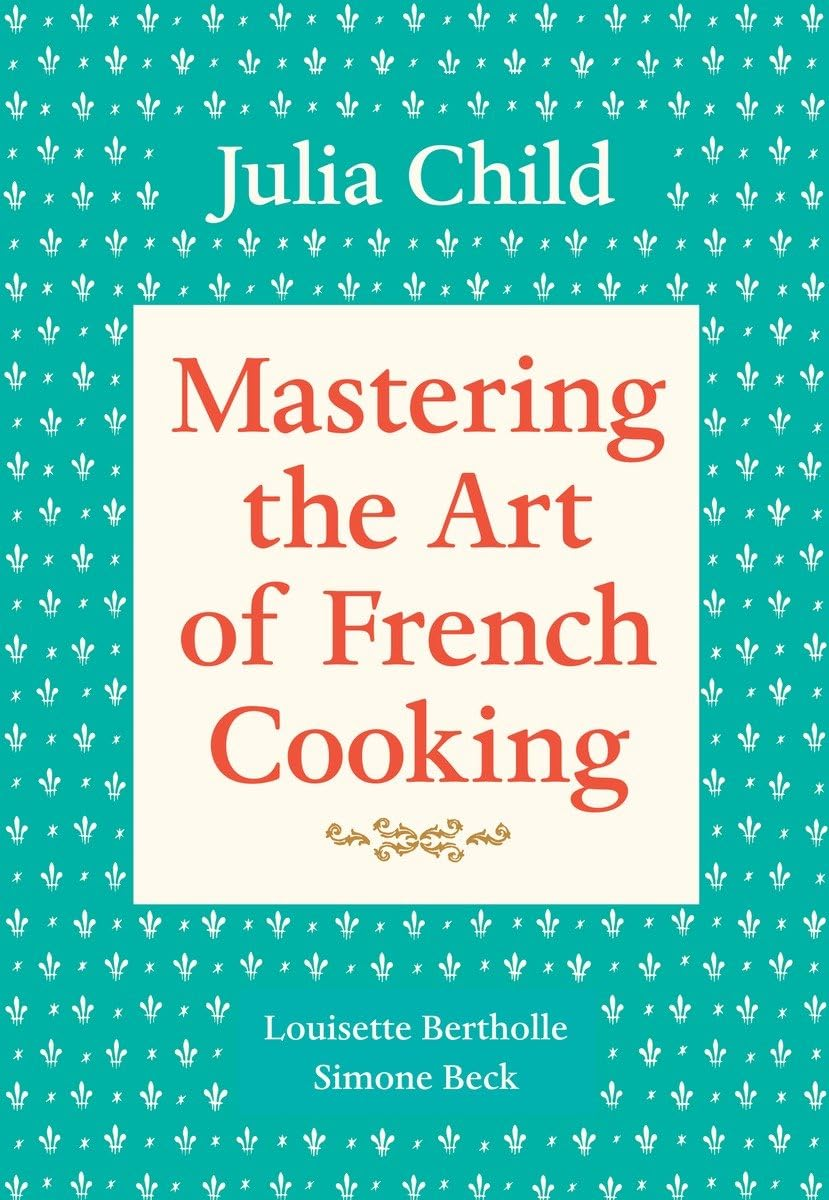

With the publication of her groundbreaking cookbook, “Mastering the Art of French Cooking,” co-authored with Simone Beck and Louisette Bertholle, she brought the secrets of French cuisine into American kitchens. Through meticulous instructions and detailed explanations, Julia demystified French cooking, making it accessible to home cooks across the United States.
Her television series, “The French Chef,” further solidified her status as a culinary icon, charming audiences with her affable personality and unpretentious approach to cooking. Julia’s infectious enthusiasm for food and her genuine love of eating inspired countless individuals to embrace cooking as a joyous and rewarding pursuit.
Fuel your creative fire & be a part of a supportive community that values how you love to live.
subscribe to our newsletter
*please check your Spam folder for the latest DesignDash Magazine issue immediately after subscription


Celebrating Her Legacy
Beyond her culinary achievements, Julia Child’s legacy as a gourmand lies in her unwavering dedication to the pleasures of the table. She believed in savoring food with gusto, celebrating the sensory experience of eating and sharing meals with loved ones. Julia’s unabashed enjoyment of food, coupled with her adventurous palate and irrepressible spirit, exemplified the essence of a true gourmand.
Her influence transcended mere recipes; it encompassed a philosophy of embracing life’s simple pleasures and finding joy in the act of nourishing oneself and others. In essence, Julia Child’s indelible imprint on food culture endures as a testament to the transformative power of passion, curiosity, and the love of good food.
Alice Waters


Alice Waters, often referred to as the pioneer of the farm-to-table movement, embodies the essence of a gourmand through her profound influence on food culture and her unwavering dedication to culinary excellence. As the founder of Chez Panisse, a renowned restaurant in Berkeley, California, Waters revolutionized American dining by championing the use of fresh, locally sourced ingredients. Her commitment to sustainable agriculture and seasonal cooking reshaped the way people think about food, inspiring a new generation of chefs and home cooks to prioritize quality, flavor, and environmental stewardship.
At the heart of Alice Waters’ philosophy lies a deep appreciation for the pleasures of simple, honest food. Her culinary vision is rooted in the belief that food should be both delicious and nourishing, reflecting the beauty of the natural world. Through her emphasis on the importance of ingredient-driven cooking and the transformative power of the communal dining experience, Waters has fostered a culture of mindful eating and conscious consumption. Her iconic restaurant, Chez Panisse, serves as a beacon of culinary excellence, showcasing the bounty of the California landscape while celebrating the joys of sharing a meal with friends and family.
Alice Waters’ impact extends far beyond the walls of her restaurant. As a prolific author, educator, and activist, she has tirelessly advocated for food system reform, food education in schools, and equitable access to healthy, sustainably produced food for all. Through initiatives like the Edible Schoolyard Project, Waters has worked to empower children to cultivate an appreciation for food and develop lifelong habits of mindful eating.
Her visionary leadership has catalyzed a global movement towards a more sustainable, ethical, and delicious approach to food, leaving an indelible mark on the culinary world and inspiring countless individuals to embrace the values of the gourmand: passion, curiosity, and a profound reverence for the pleasures of the table.
Elizabeth David
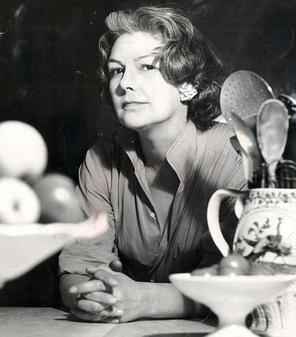

Elizabeth David, a pioneering figure in British gastronomy, left an enduring legacy as a gourmand through her influential writings and profound impact on culinary culture. Born in England in 1913, David’s passion for food was ignited during her travels across Europe and the Mediterranean, where she developed a deep appreciation for the rich culinary traditions of the region. Her experiences abroad inspired her to share the joys of Mediterranean cooking with her fellow Britons, at a time when post-war Britain was still grappling with food rationing and culinary austerity.
She was also a trailblazing advocate for the revival of traditional British foodways and the promotion of local, seasonal ingredients. Her tireless efforts to champion the virtues of regional cooking and artisanal food production helped to shape the modern British food landscape, inspiring a renaissance in British gastronomy and paving the way for a new generation of chefs and food artisans.
David’s legacy as a gourmand is one of passion, curiosity, and a relentless pursuit of culinary excellence, embodying the timeless virtues of good food, good company, and the simple pleasures of the table.
David’s Iconic Books on Cooking
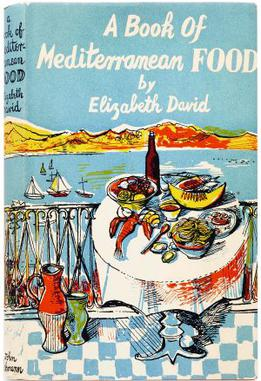

Through her evocative prose and meticulously researched recipes, Elizabeth David introduced British readers to a world of exotic flavors and ingredients, transforming their palates and expanding their culinary horizons. Her seminal works, including “A Book of Mediterranean Food” and “French Provincial Cooking,” not only celebrated the vibrant diversity of Mediterranean and French cuisine but also served as a rallying cry for a more adventurous and enlightened approach to cooking and eating.
David’s emphasis on simplicity, freshness, and authenticity resonated deeply with a generation of food enthusiasts, who embraced her vision of food as a source of pleasure, conviviality, and cultural enrichment.
Edna Lewis
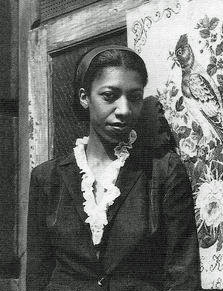

Edna Lewis, affectionately known as the “Grand Dame” of Southern cooking, profoundly influenced food culture as a gourmand through her deep connection to the culinary heritage of the American South. Born in Freetown, Virginia, in 1916, Lewis grew up immersed in the rich culinary traditions of her African American community, where she learned the art of cooking from her family and neighbors. Her experiences on the family farm instilled in her a reverence for seasonal ingredients and traditional cooking methods, shaping her approach to food as a celebration of the land and its bounty.
As a chef, educator, and author, Edna Lewis played a pivotal role in preserving and promoting the culinary legacy of the American South. Her landmark cookbook, “The Taste of Country Cooking,” published in 1976, offered a vivid portrait of Southern life and cuisine, showcasing the simple yet soulful dishes that defined rural Southern cooking. Through her eloquent storytelling and meticulously documented recipes, Lewis provided readers with a window into a world of heirloom ingredients, time-honored techniques, and the transformative power of food as a means of sustenance, comfort, and cultural expression.
Beyond her culinary contributions, Edna Lewis’ impact as a gourmand extended to her role as a cultural ambassador for Southern foodways and the African American culinary tradition. Through her advocacy for farm-to-table cooking, community-based agriculture, and the preservation of heirloom varieties, Lewis helped to reframe the narrative around Southern food, elevating it from a marginalized cuisine to a celebrated culinary heritage. Her legacy continues to inspire a new generation of chefs, farmers, and food enthusiasts to embrace the values of tradition, stewardship, and hospitality that lie at the heart of Southern cooking, ensuring that the legacy of Edna Lewis as a gourmand endures as a beacon of culinary excellence and cultural pride.
M.F.K. Fisher


M.F.K. Fisher, often hailed as one of the greatest food writers of the 20th century, left an indelible mark on food culture as a gourmand through her eloquent prose and profound insights into the art of eating. Born in 1908, Fisher’s literary explorations of food transcended mere recipes, delving into the deeper connections between food, culture, and human experience. Her essays, collected in works such as “The Art of Eating” and “Consider the Oyster,” captured the sensory pleasures of the table with unparalleled grace and sophistication, inviting readers to savor the nuances of taste, texture, and aroma that define the culinary experience.
Fisher’s writing was characterized by a deep appreciation for the rituals and traditions of eating, as well as a keen understanding of the psychological and emotional dimensions of food. Through her vivid descriptions of meals shared with friends and loved ones, Fisher celebrated the transformative power of food as a source of nourishment, comfort, and connection.
Her ability to evoke the sensual pleasures of the table, combined with her insightful reflections on the cultural significance of food, established her as a literary luminary whose influence continues to resonate with food enthusiasts and writers alike. In essence, M.F.K. Fisher’s legacy as a gourmand lies in her ability to capture the essence of the culinary experience in all its richness and complexity, inspiring readers to approach food with curiosity, reverence, and delight.
Which Female Gourmands Inspire Your Love of Food?


Through their passion, creativity, and dedication, these women have enriched the culinary landscape, broadened our palates, and deepened our appreciation for the pleasures of the table. From introducing new cuisines to pioneering sustainable practices, these women have reshaped the way we think about food, inspiring generations of cooks, writers, and food enthusiasts to embrace the values of curiosity, mindfulness, and joy in eating. Their legacies serve as a testament to the transformative power of food as a source of nourishment, connection, and cultural expression, ensuring that their influence will continue to be felt for years to come.
Which female gourmands inspire your love of food? Let us know in the comments below!
Design Dash
Join us in designing a life you love.
-
Why Interior Designers Should Consider an Online Color Theory Class
Read on to learn more about this discipline and for a short list of our favorite online color theory classes to get you started.
-
How to Avoid Overpaying Estimated Taxes as a Firm Owner
Most firm owners must submit quarterly estimated tax payments based on their AGI. Here’s how to avoid overpaying estimated taxes as a design business owner.
-
Make It a Habit: The Key to Keeping New Year’s Resolutions
Behavioral scientists often argue that the key to the persistence and success of New Year’s resolutions lies in habit formation psychology.
-
Get to Know the DesignDash Team Through a Q&A at Our 2024 Holiday Party!
From favorite traditions to proudest moments, get to know the team and what inspires them for the new year by reading our 2024 holiday Q&A!
-
Your Digital Footprint: Why Entrepreneurs Need to Think Beyond Social Media
Social media is great for today, but creative entrepreneurs need a lasting online presence. Learn how to expand your digital footprint with websites, newsletters, and features that showcase your work for years to come.
-
Winter Capsule Wardrobe: Staying Stylish This Season with Just 10 Pieces
Simplify your mornings and elevate your style with our guide to creating a winter capsule wardrobe!








